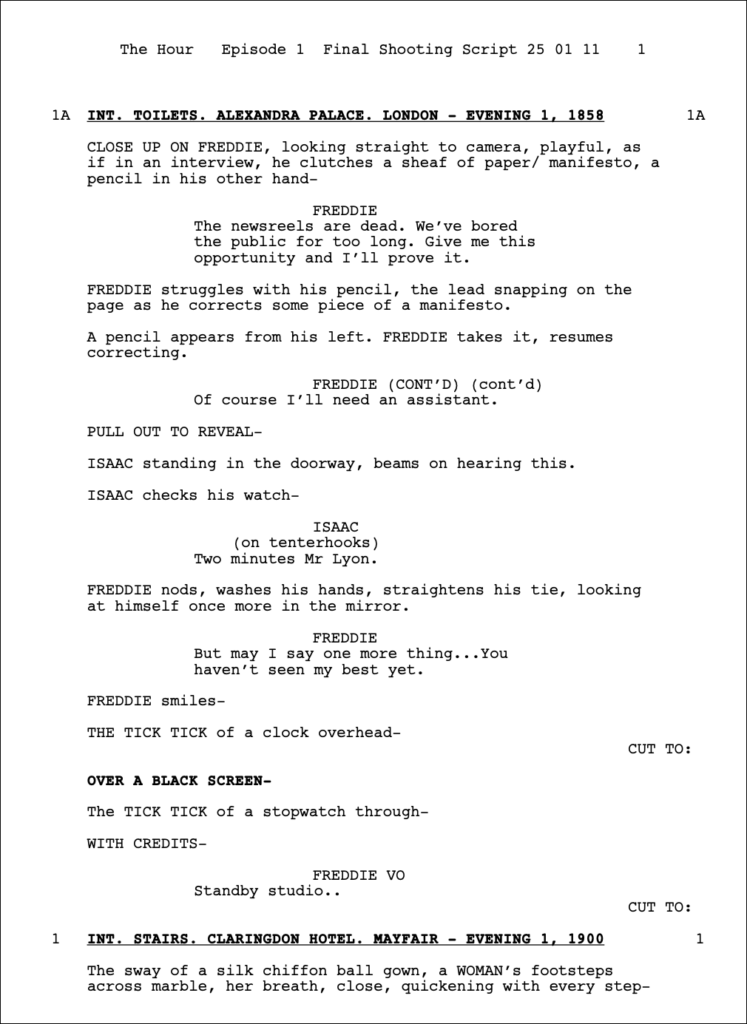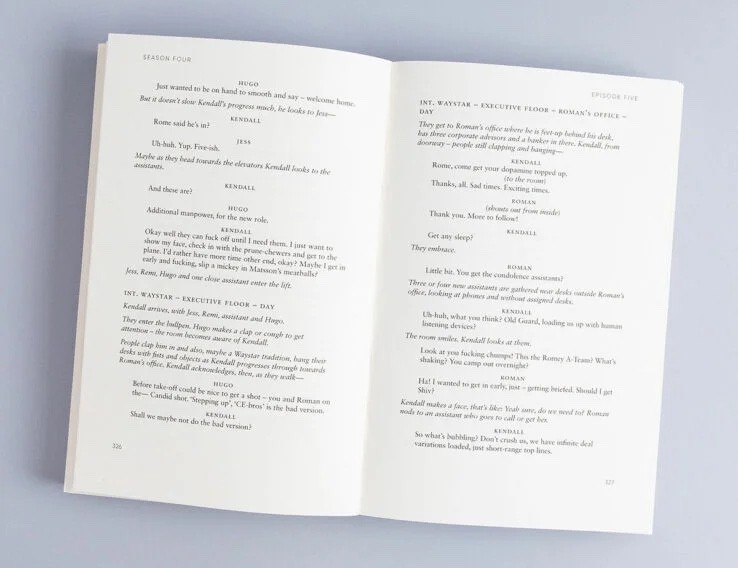Fiction authors can learn how to write effective dialogue by reading scripts and screenplays.
Dialogue is one of the key elements of fiction, and Scrivener has a powerful feature called Linguistic Focus to help you ensure that your dialogue flows. Writing dialogue is a skill that you can learn by reading good dialogue in fiction, and by observing people in real life. Fictional dialogue shouldn’t sound like the way people really speak; there are too many repetitions, stumbled words, and fillers for that sort of dialogue to work on the page. Dialogue in fiction is an idealized form of the way people speak.
A good way to learn more about dialogue is to focus on authors in your genre who write efficient dialogue. There are plenty of excellent novels where the dialogue is mediocre, but when the dialogue is snappy and efficient, it jumps off the page and you notice it. Dialog is often genre-specific. The way dialogue is used in thrillers is very different from the way is presented in romance novels. And in literary fiction, authors have much more latitude to work with dialogue and use a wider range of styles and techniques.
One way to learn how to write better dialogue is to read scripts. If you’re not used to reading scripts and screenplays, it can take some getting used to, because of the way they are formatted. Scripts for the theater generally feature some stage directions, then the rest are character names followed by what they say. These are easy to follow, and the dialogue is obvious.
But movie and TV screenplays are different. Much of what they contain is shooting information – locations, shots, actions, and props – with the dialog centered on the page under the character names.

When reading screenplays, you can read the dialogue by focusing on the centered text, and not get distracted by all the rest. Once you’ve gotten used to the formatting, screenplays are easy to read, and you might even want to read along while you’re watching a movie or TV show to see the dialog on the page and hear how the actors interpret it. Often, dialogue that may seem banal in a script can come to life when interpreted by an actor. This is difficult to bring to the page in fiction, however, because it’s the reader who interprets the characters’ words.
Fiction lacks the visual elements of film and TV, and a lot of what is said in a novel is unsaid in a film, because of what the characters do and what is around them. Dialogue in a film or TV show is often terser than in fiction because it has the visual context as a support. There are some exceptions, of course; one example is My Dinner with Andre, which is a conversation between two people at dinner in a restaurant. It features long sections of dialogue, which seem like they shouldn’t work, but which keep the viewer interested because each segment is like a short story. You couldn’t have characters speaking like that in a novel, but perhaps it’s the editing, shifting from one character to another, that makes it so gripping on film.
There are countless plays that are published in book form, and you can find plenty of examples of great dialogue, but you may find movies and TV shows to be more useful, because theater dialogue often sounds a bit stilted, especially with older plays. You can read recent movie and TV screenplays, which often feature more realistic dialogue than published plays; here are some examples of where you can find scripts and screenplays.
The BBC has an extensive Script Library where you can download scripts of TV and radio programs. The site has scripts for popular TV series such as Line of Duty, Killing Eve, and Sherlock, and many other BBC productions.
The Hollywood film industry website Deadline has a Read the Screenplay section where scripts for popular films are posted. At the time of this writing, the latest scripts include Michael Mann’s Ferrari, Yorgos Lanthimos’s Poor Things, and the Pixar movie Elemental.
The Daily Script has hundreds of screenplays of movies and TV shows, some of which are drafts, and others which are production scripts. Read scripts for movies like The Big Sleep and The Godfather, an episode of Sex and the City and the pilot of The West Wing.

There are also some movie and TV scripts published in book form; these often don’t contain all the detailed shooting information and are easier to read. All four seasons of Succession are available in book form, the entire Fleabag corpus is available in a single volume, and the screenplay for Oppenheimer is available in book form. (You can also download a PDF of this screenplay.)
You probably read lots of books, notably in the genre you write in, but it can be useful to add scripts and screenplays to your reading, so you can focus on dialogue and learn how to master this skill.
Kirk McElhearn is a writer, podcaster, and photographer. He is the author of Take Control of Scrivener, and host of the podcast Write Now with Scrivener.

